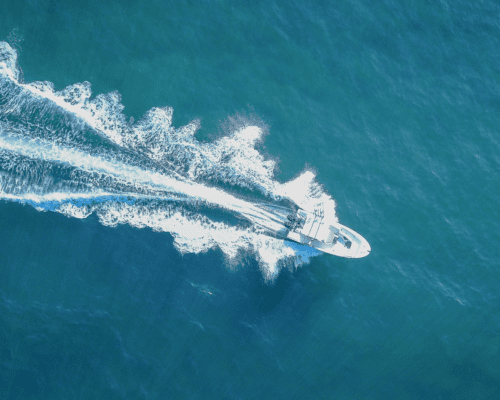Boating Safety and the Legal Consequences of Negligence

In the past five years, boating has surged in popularity due to the COVID-19 pandemic, rising disposable incomes, and a growing interest in water sports. Advancements in boat technology and environmental awareness have also played a role. Additionally, boat-sharing services have made boating more accessible. These factors have led to more people enjoying the recreational benefits of being on the water despite regional variations and external factors.
Due to the increasing popularity of boating and the potential risks involved, the importance of boating safety has never been more evident. Negligence in boating accidents can have serious legal consequences. Depending on the severity of the incident and applicable laws, consequences may include fines, loss of boating privileges, civil liability for property damage or injury, and even criminal charges such as manslaughter in cases of reckless or intoxicated operation resulting in death. Boaters must adhere to safety regulations, maintain proper equipment, and operate vessels responsibly to prevent accidents and protect themselves and others.
Boating Safety Measures
Boating, a beloved recreational activity millions enjoy, offers a unique blend of relaxation and adventure. However, ensuring safety on the water is paramount. In fact, according to the U.S. Coast Guard, in 2022, 75% of fatal boating accident victims drowned. 85% of those who drowned were not wearing life jackets.
The following are elemental safety measures for boating:
- Personal flotation devices (PFDs): Every person on board should have access to a properly fitted life jacket. These personal flotation devices are essential for buoyancy in case of a fall overboard or a capsizing event.
- Fire extinguishers: Boats with enclosed engine compartments or fuel systems typically require fire extinguishers. These are crucial for addressing potential fires and complying with safety regulations.
- Visual distress signals: Items such as flares, flags, or distress lights are essential for signaling for help in emergencies, especially if the boat is stranded or in distress.
- Navigation lights: Proper navigation lights are essential for safe boating, especially during low visibility or nighttime operations. They help other vessels identify your boat’s position and direction of travel.
- First aid kit: A well-equipped first aid kit can be crucial for addressing minor injuries or providing initial care until professional medical help arrives. It should include bandages, antiseptic wipes, pain relievers, and basic medical supplies.
Weather awareness and emergency preparedness are equally critical. Sudden storms or rough waters can pose significant risks if boaters are unprepared.
Common Boating Accidents Resulting from Negligence
Collisions with other vessels are among the most common accidents resulting from negligence. Factors contributing to collisions include operator inattention, improper lookout, and excessive speed. Other accidents, such as grounding or capsizing, can occur due to negligence or lack of proper maintenance.
Understanding the role of alcohol and substance abuse in boating accidents is essential. The U.S. Coast Guard found that alcohol was the leading contributing factor in fatal boating accidents, accounting for 16% of deaths.
Determining Liability for a Boating Accident in Texas
In boating accidents, negligence often plays a central role in personal injury claims. In the context of boating, negligence refers to the failure to exercise reasonable care, resulting in harm to others. Establishing the duty of care, proving causation, and demonstrating damages are crucial elements in determining liability.
Importantly, under Texas law, a modified comparative negligence system is used to determine liability in personal injury cases, including those related to boating accidents. In a comparative negligence system, each party involved in an accident can be assigned a percentage of fault. However, in Texas, a plaintiff can only recover damages if they are at fault less than 51%.
Knowing Your Rights After a Houston Boating Accident
Victims of boating accidents have the right to seek compensation for injuries and damages. In addition to medical bills, you may be entitled to recover various types of economic and non-economic damages in a personal injury claim, depending on the circumstances of your case. These damages include lost income, pain and suffering, loss of enjoyment of life, and, in some cases, punitive damages. Documenting injuries and damages thoroughly with medical records, photographs, and witness statements strengthens a personal injury claim.
Were You Injured in a Houston Boating Accident?
If you’ve suffered injuries due to a boating accident in Texas that wasn’t your fault, reach out to a dedicated Houston boat accident lawyer at DK Law. Led by experienced attorney Darius Khosravian, our Houston legal team is here to guide you through the legal process, make sure your rights are protected, and fight for the compensation you deserve.
Don’t navigate these waters alone—call us at (281) 402-8856 to schedule a free consultation today.